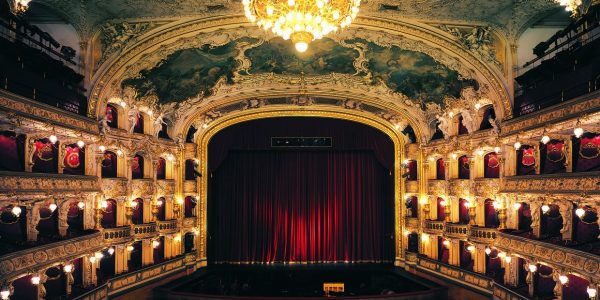
Musicology may be a word that many laypersons have not heard. Just from looking at the word, it is fairly obvious that it means “the study of music,” but what does it actually entail? Many serious music students don’t even hear the term “musicology” until they get to college, and only the select few who decide to go on to graduate school will be exposed to the many specific areas of musicological study. This makes the whole field centered on a very narrow group of individuals, cutting off the wider audience. Glancing through any musicological article, it is easy to get lost in the high academic music jargon, even for upper-level undergraduate students. While these types of articles, books, essays, etc. are targeted at the musically educated audience, the fact that these kinds of works are inaccessible to the wide array of casual listeners who make up the majority audiences at symphonies, operas, or other classical music performances is somewhat disconcerting. Many people claim to not like the genre of classical music because they “don’t understand it,” however, if musicologists present their research in a more easily understandable way then more people may be open to classical music. In a time where support for fine arts is declining, it is becoming more apparent that western classical music must expand its horizons and not only focus on keeping the audiences that they have, but expanding to the younger people of the world. One way of doing so would be to make musicological research more accessible in the ways of dissemination, relevance to today’s culture, and overall understandability.
One of the main ways in which musicology can be defined, as stated by Vincent Duckles and Jann Pasler, is a focus not just on the notes that are on the page of a piece of music but on music as a process occurring between composer, performer, audience, and the historical setting of the time in which the piece was performed, i.e., sociopolitical climate, cultural context etc. The historical method of researching and analyzing music goes well this definition of musicology. The historical methodology can be split up into two complementary parts. First, a positivistic-empirical approach that is centered on gathering and studying documents in order to establish an objective historical narrative, while the second is based on a theoretical-philosophical standpoint and focuses on the overarching historical context, including the sociopolitical and cultural climate. This method also attempts to define the specific stylistic tendencies of the period, considering similarities in composition and finding an overall aesthetic. Because of this broader approach to analyzing music, it may be one of the easiest ways to draw in audiences. It does not take an exuberant amount of musical knowledge to understand why a piece would have been important to previous audiences, especially when taking into account social, political, or cultural circumstances—Britten’s “War Requiem” being one example. It combines both musicology as a process between composer, performers and audiences because of the political unrest and anti-war sentiment that Britten was communicating. Although it may not be every listener’s preference, when all of these circumstances are taken into account, it is much easier to appreciate the piece and have an emotional response.
Claude Palisca also addresses the issue of music scholarship having a small sphere of influence. He speaks of Joseph Kerman’s observation, specifically with American music scholars, that in an effort to guard their academic authority through a more objective approach they fail to include their own response to the piece thus taking out the emotional human response that composers often seek to evoke. If the central aspect of human emotion is taken out of music, what is left for casual listeners to latch onto? In order to keep audiences coming to events, it is important that they can grasp onto something more than just an academic understanding of a piece so that they can appreciate it and continue to come to performances.
Jacque Hale
Allen, Aaron S. “Ecomusicology: Ecocriticism and Musicology.” Journal of the American Musicological Society 64, no. 2 (2011): 391-94. doi:10.1525/jams.2011.64.2.391.
Palisca, Claude V. “Current Trends in Historical Musicology.” The World of Music 19, no. 3/4 (1977): 134-43. http://0-www.jstor.org.lib.utep.edu/stable/43560497.
Stanley, Glenn. “Disciplines of Musicology: Historical Method.” Grove Music Online. Edited by Deane Root. Accessed 17 January 2018. http://0-www.oxfordmusiconline.com.lib.utep.edu/grovemusic/view/10.1093/gmo/9781561592630.001.0001/omo-9781561592630-e-0000046710?result=1&rskey=x7xUEs#omo-9781561592630-e-0000046710-div1-0000046710.2
